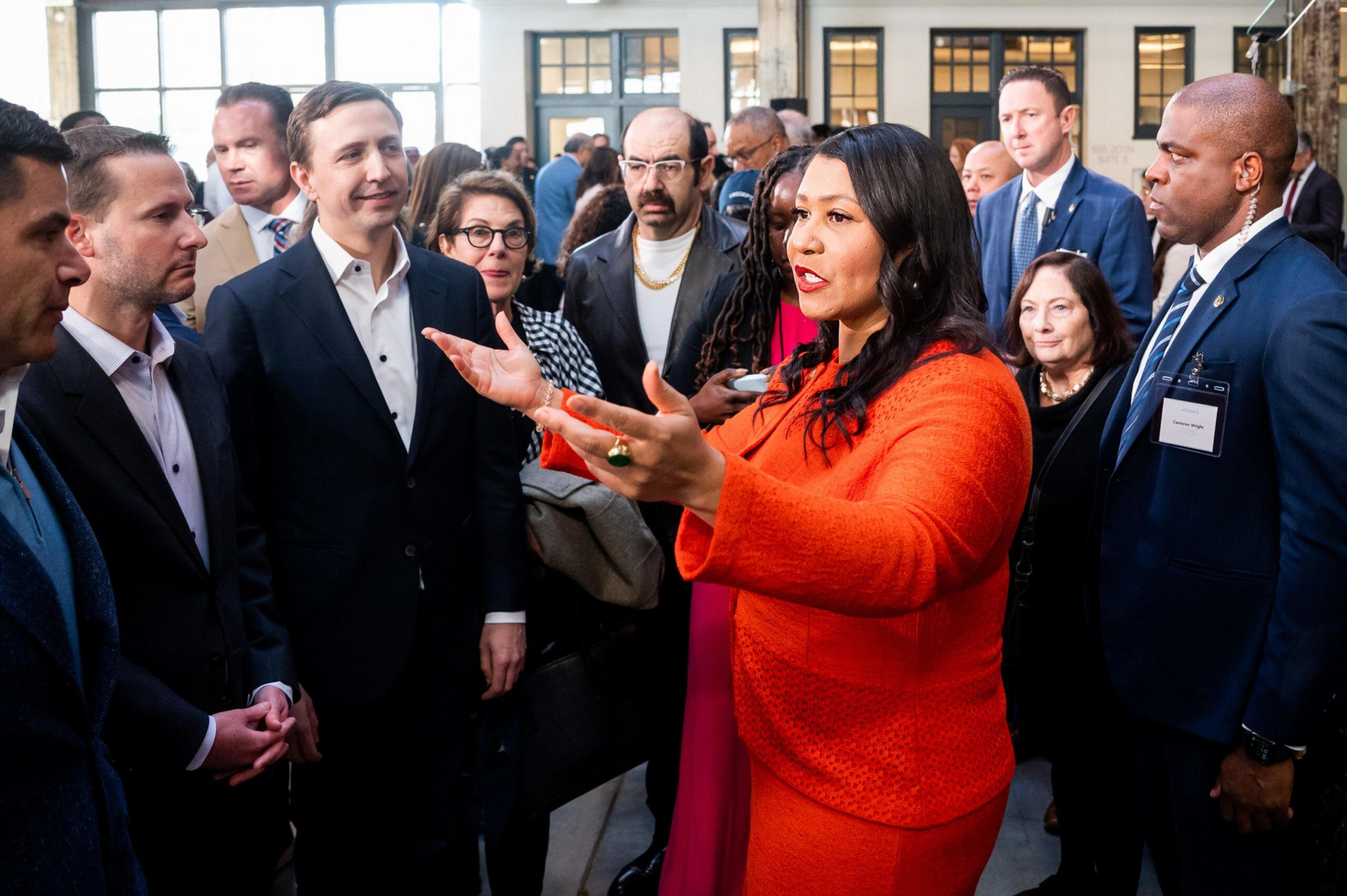San Francisco lawmakers OK’d another $20 million in business tax refunds, adding to a toll that prompted Mayor London Breed to order emergency budget cuts earlier this month.
Topping the list approved by the Board of Supervisors Tuesday was an $18 million refund of telephone use and line taxes to Twilio, a company that provides web-based interfaces for voice and other communications that gave up three of five floors it occupied Downtown (opens in new tab) in summer 2022 after announcing it would become a “remote-first” company.
The refund was rubber-stamped by the Board of Supervisors Tuesday, along with payouts of $252,526 to Macquarie Holdings, $1,355,943 to Bank of New York Mellon Trust and $1,039,237 to PFP Holdings for refunds of gross receipts taxes and homelessness gross receipts surtaxes authorized under “Big C,” a ballot measure passed in 2018 to put an extra tax on wealthier companies to fund services for people experiencing homelessness. That tax suffered a serious decline in revenue (opens in new tab) due to the increase in remote work that accompanied the Covid pandemic.
READ MORE: Hefty Taxes Threaten Downtown San Francisco’s Revival, Report Finds
They are hardly the first such tax refunds.

Last month, the city approved a refund of $4.2 million in various business taxes to AppLovin, a mobile tech company, including from “Big C” and an “overpaid executive tax (opens in new tab)” passed by voters in 2018. In March, the city settled with WeWork, a workspace company now facing bankruptcy (opens in new tab), refunding over $13 million in overpaid taxes from “Baby C,” an office rents tax also passed by voters in 2018 to fund early child care programs. Both “Big C (opens in new tab)” and “Baby C (opens in new tab)” had their revenue streams delayed by lawsuits.
Disputed business taxes have impacted San Francisco to the extent that Breed specifically mentioned the issue in an Oct.11 letter (opens in new tab) to department heads ordering them to trim their budgets by at least 3%.
In the letter, Breed cites “slow growth in business tax revenue … exacerbated by an increasing amount of litigation and disputes over those business taxes” as in part necessitating the cuts, along with delayed Federal Emergency Management Agency reimbursements for disaster relief activity during the pandemic and employee health care costs.

The emergency budget instructions came months after Breed noted the need to restructure business taxes during her State of the City address in February, and a report by Treasurer Jose Cisneros, Controller Ben Rosenfield and City Economist Ted Egan done at the request of Supervisor Rafael Mandelman found that city tax revenue “increasingly comes from a smaller handful of large taxpayers, mainly in the technology sector,” that can reap significant tax savings by moving elsewhere.
Breed and some supervisors are working toward a business tax reform measure that could be placed on the ballot as soon as November 2024. According to a spokesperson for Breed, the city is “currently in outreach mode,” getting input from stakeholders on what they want to see and then will start drafting a ballot measure by the end of the year.
Mandelman says the road to an equitable measure that can win at the ballot could be hard.
“Any tax reform is going to have winners and losers,” he told The Standard in a phone call. “We’re all going to have to hope everyone can come together and support something, and I’m not sure that’s going to happen.”
